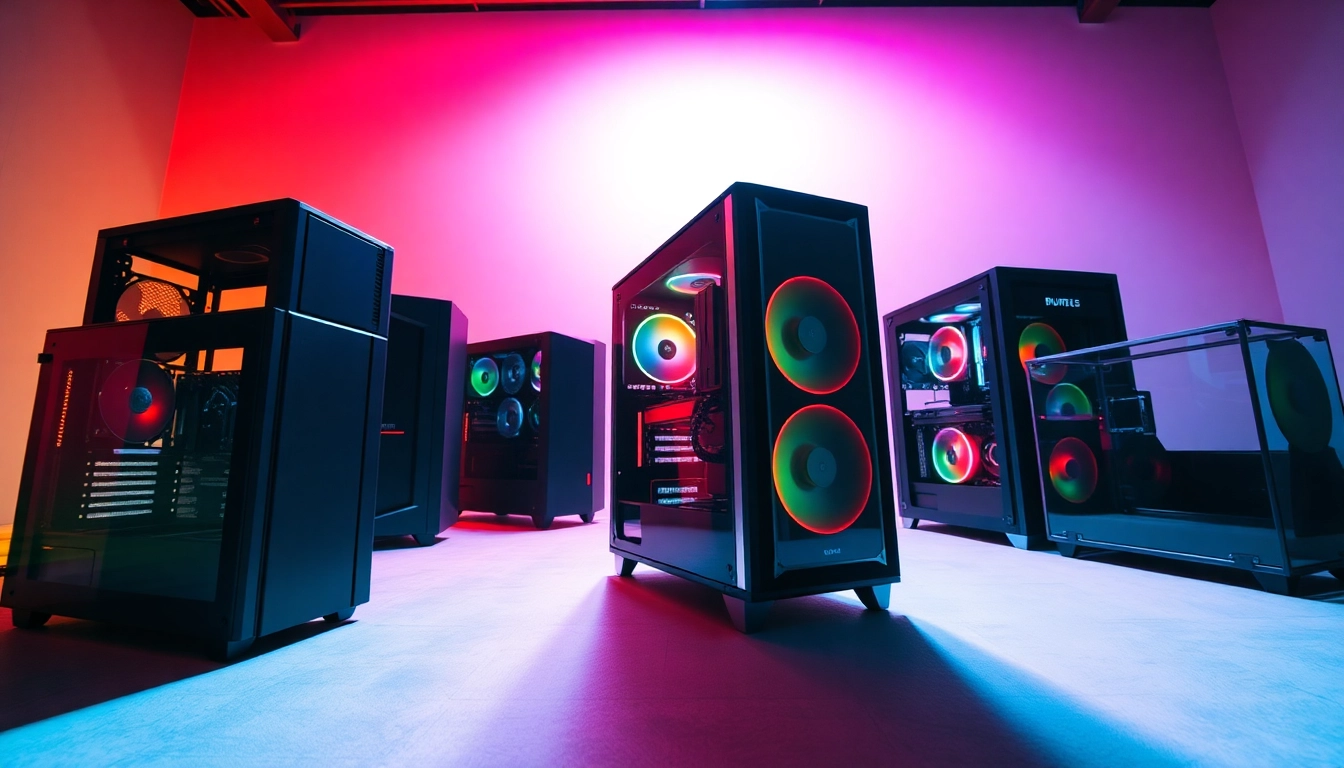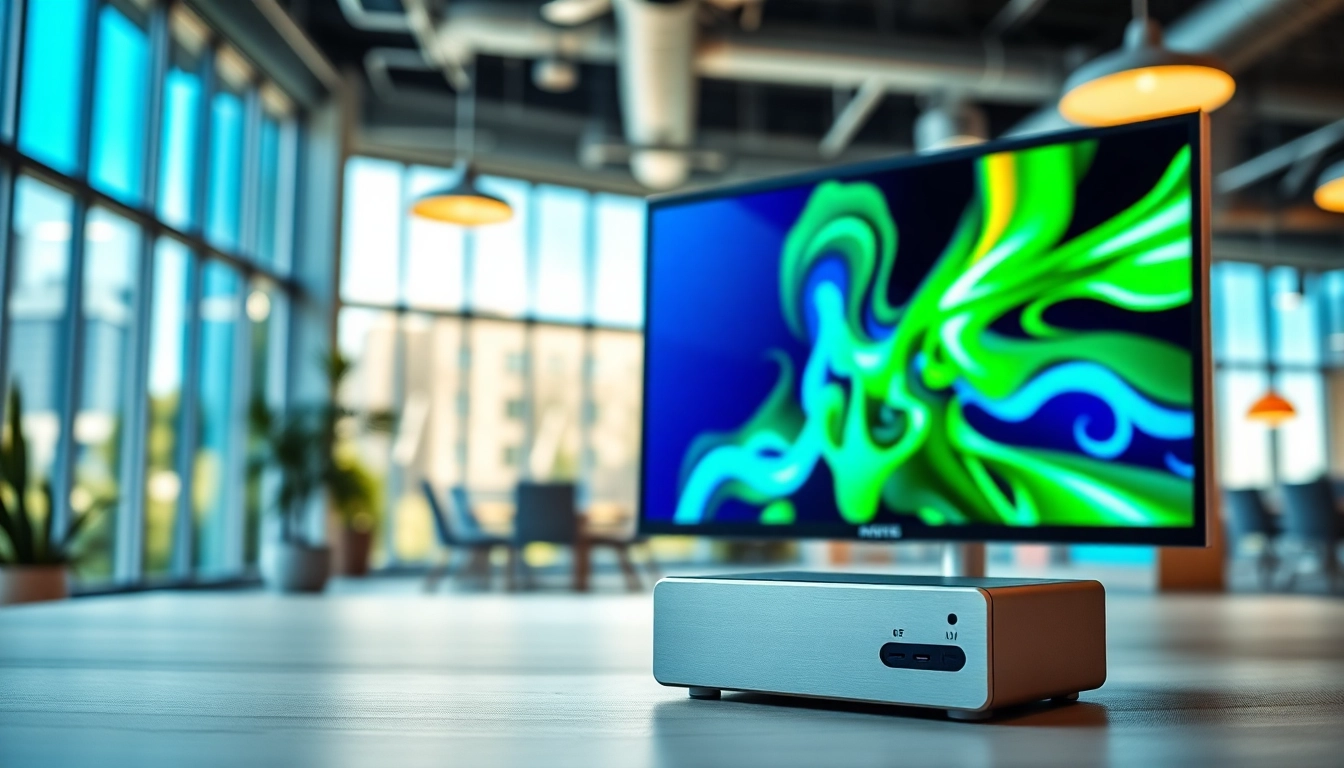Understanding Different Types of PC Cases
When it comes to building a personal computer, the choice of a PC CASE Supplier is crucial. The case serves not only as a protective enclosure for your components but also influences cooling efficiency, aesthetics, and the overall build experience. This guide will delve deep into the various types of PC cases available in the market, helping you make an informed decision based on your specific needs and preferences.
Full Tower vs. Mid Tower: Key Differences
PC cases generally come in several standard sizes: full tower, mid tower, and mini tower. Understanding the differences can help you choose the best case for your build.
Full tower cases are the largest option and are perfect for enthusiasts who want to include multiple components such as extensive cooling solutions, additional hard drives, and high-end graphics cards. This ample size allows for superior airflow and cooling potential, accommodating larger motherboards like E-ATX and supporting configurations with custom water cooling systems.
On the other hand, mid tower cases offer a balanced approach. They typically fit most gaming setups, supporting standard ATX motherboards and providing enough room for a decent number of hard drives, graphics cards, and cooling units. Mid towers are popular among gamers who want a high-performance system without needing the massive space that full towers occupy. It is essential to evaluate your storage requirements and component sizes when choosing between these two options.
Tempered Glass Cases: Aesthetic Appeal
One of the most popular trends in PC case design is the incorporation of tempered glass panels. These cases allow for stunning visual aesthetics, showcasing the interior components, RGB lighting, and custom builds. Not only do they offer a premium look, but tempered glass also provides durability and resistance to scratches compared to traditional acrylic windows.
However, there are a few considerations to keep in mind. While the aesthetics are appealing, glass panels can retain heat more than metal, potentially affecting airflow. It’s crucial to pair these cases with efficient cooling solutions, such as multiple fans or optimized airflow systems. Moreover, cleaning can be slightly more laborious due to the fingerprints and dust that show more effectively on glass surfaces.
Micro ATX Cases: Compact Solutions
For users with limited space or who prefer smaller builds, Micro ATX cases present a compelling solution. These cases are designed for micro ATX motherboards and provide a more compact footprint while still allowing for a reasonably powerful gaming setup.
Micro ATX cases come with several benefits, including portability and versatility. They can fit into tighter spaces, making them ideal for living room setups or smaller desks. Despite their smaller size, they often include enough slots for sufficient cooling and may fit a couple of hard drives as well, making them suitable for many casual and even some mid-level gaming builds.
However, the compact nature of these cases limits the number of additional components you can incorporate, so it’s essential to carefully plan your build to ensure compatibility of all parts.
Choosing the Right PC CASE Supplier
With numerous options available, selecting the right PC CASE Supplier can seem daunting. However, certain factors should guide your decision-making process.
Factors to Consider: Quality and Reliability
When searching for a PC case supplier, quality and reliability should top your list of considerations. A well-constructed case will protect your components from dust and damage and provide optimal airflow and cooling. Look for suppliers that provide detailed specifications on their products, including materials used. Quality cases often feature durable steel or aluminum construction, as opposed to cheaper plastic alternatives that can compromise longevity and performance.
Reliability is equally important; ensure your chosen supplier offers a guarantee or warranty for their products. Systems built in reputable cases can mitigate issues related to overheating and hardware damage over the life of your build.
Brand Reputation: The Trusted Names
Some brands have established themselves as industry leaders due to their commitment to quality and innovation. Names like Corsair, Lian Li, and Thermaltake are known for their premium PC cases, offering a wide range of options tailored to various needs and preferences.
Researching customer feedback on these brands can provide insights into real-world performance and reliability. User forums and review sites can be helpful in gauging brand reputation, as they showcase actual experiences from other builders. This information can often highlight potential downsides of specific cases or suppliers, which may not be evident from promotional content.
Customer Reviews: User Experiences Matter
In addition to brand reputation, customer reviews play a vital role in your decision-making process. Exploring reviews on e-commerce platforms, tech forums, and social media can unveil unique insights into specific products.
Pay attention to reviews that discuss build quality, thermal performance, and ease of installation. Users often share personal experiences, highlighting pros and cons that may not be fully addressed by suppliers. This information can be pivotal when making your choice between otherwise similar case options.
The Role of Cooling in PC Cases
One of the primary functions of a PC case is to provide adequate cooling for its internal components. Understanding how different cooling solutions work within a case is crucial for both performance and longevity.
Airflow Design: Importance in Performance
A well-designed airflow system is critical for optimizing a PC’s performance, preventing overheating and hardware failure. Typically, airflow systems operate on two primary principles: intake and exhaust. Cases that allow for front-to-back airflow through designed ventilation will enable cooler air to enter the case while pushing warmer air out.
When choosing a case, consider models with multiple fan slots that support various configurations. It’s essential to assess the airflow design in conjunction with the number and type of cooling fans you plan to install. High-quality cases offer options for larger fans, which can move air more efficiently and quietly than smaller models, making a noticeable difference in thermal performance.
Fan Placement: Optimizing Cooling Efficiency
Proper fan placement is crucial for maximizing cooling efficiency. The general principle to follow is to have airflow flow in a single direction—from front intake fans to rear exhaust fans.
Experimenting with fan placement can lead to surprising results. For example, adding top-mounted exhaust fans can further enhance airflow by allowing hot air to escape before it accumulates in the chassis. Moreover, ensuring that no cables block airflow will also significantly improve cooling performance.
Using dust filters on intake fans can help maintain cleanliness and prevent dust accumulation, which can hamper airflow and system cooling over time.
Liquid Cooling Options: Pros and Cons
Liquid cooling solutions are increasingly popular among gamers and overclockers, providing superior heat dissipation compared to traditional air cooling systems. They can offer significant performance benefits, particularly in high-performance builds that generate a lot of heat.
However, liquid cooling systems also come with certain challenges. Installation can be more complex, potentially requiring additional components and tubing. Furthermore, there is a risk of leakage, which can damage internal components if not set up correctly. Select cases designed specifically for liquid cooling compatibility, featuring space for radiators and pump placements to simplify installation.
Customizing Your PC Case: Options and Accessories
Once you’ve chosen your case, you can further personalize it to suit your style and functional needs. Customization options exist to make your build unique and improve performance.
LED Lighting Solutions: Enhancing Visual Appeal
LED lighting has transformed how PC builders approach aesthetics. Adding RGB strips or perfectly placed LEDs can create stunning visual effects within your build.
Many cases come pre-equipped with RGB lighting options, allowing you to sync lights with software controls for a cohesive look. However, for those who want a customized effect, aftermarket lighting kits provide significant versatility. You can experiment with different colors and lighting modes, creating a dynamic viewing experience regardless of whether your PC is in use.
Aftermarket Cooling: Upgrading Your Build
If you’re looking to enhance your cooling solution, several aftermarket options cater to different needs. Upgrading to more efficient fans or implementing a more sophisticated cooling system can improve performance, extending the lifespan of your components.
Popular aftermarket cooling solutions include magnetic levitation fans for whisper-quiet operation, hybrid cooling systems combining both air and liquid cooling, and even custom water-cooling loops for advanced users. Evaluating your build’s thermal performance can guide you in identifying what upgrades make sense for maintaining optimum conditions.
Side Panels and Custom Panels: Unique Touches
Custom side and front panels can enhance your case’s aesthetics while showcasing your components. Many brands offer a plethora of aftermarket options, enabling you to switch out basic panels for more stylish designs.
Consider having panels that fit specific themes (like gaming or futuristic designs), or even ordering custom panels featuring LED backlighting or unique materials. Customizing panels allows you to create a distinct identity for your PC, setting it apart from standard builds.
Where to Buy: Finding the Best PC CASE Supplier
Choosing where to purchase your PC case can significantly impact your overall satisfaction. Understanding both online and offline buying options will ensure you get the best experience.
Online vs. Physical Stores: Weighing Your Options
Online shopping for PC cases offers unparalleled convenience, variety, and often competitive pricing. Websites dedicated to PC building supplies frequently host customer reviews and detailed product descriptions, helping you make informed decisions.
However, physical stores allow for in-person evaluation, letting you see and feel the product before purchase. This can be particularly useful for cases with unique designs or specific dimensions. Many physical stores also provide expert guidance and advice, helping you identify the best products for your needs.
Price Comparisons: Getting the Best Deals
Conducting price comparisons is important when seeking the best deal for your PC case. Prices can fluctuate between suppliers, especially during sales events or seasonal discounts.
Comparative shopping can be made easier with price aggregate tools or browser plugins that display the best prices available online. Look for bundles that combine a case with fans or cooling solutions to maximize savings. Remember that cheaper options may compromise quality, so keep your budget aligned with your build’s performance needs.
Return Policies and Warranties: What to Look For
Lastly, it’s vital to review the return policies and warranties provided by suppliers. Understanding the return timeframe, conditions, and warranty coverage can protect you in case the case does not meet your expectations.
Reputable suppliers usually offer satisfaction guarantees, robust warranty coverage, and after-sales support. Researching these terms can prevent potential hassles should issues arise post-purchase.



